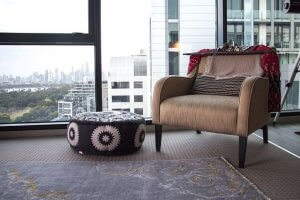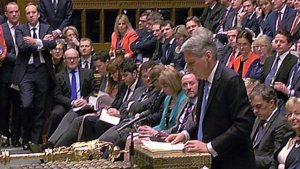- Real Estate

Shorter Reads
A closer look at two important real estate rulings by the Supreme Court
Associate Rebecca Mitchell from the Real Estate team examines both rulings.
2 minute read
Published 3 February 2023
Key information
- Specialisms
- Real Estate
- Services
- Real Estate
The Supreme Court has handed down two important decisions this week in the cases of Sara & Hossein Asset Holdings Ltd v Blacks Outdoor Retail Ltd (“Blacks Outdoor Retail case”) and Fearn and others v Board of Trustees of the Tate Gallery (the “Tate Modern case”)
Blacks Outdoor Retail case
Sara & Hossein Asset Holdings Ltd, being the tenant of a premises in Liverpool and London, challenged the conclusiveness of its landlord’s certificate of annual service charges. Its lease states that such certificate would be conclusive save for any manifest or mathematical error of fraud. The tenant’s obligation was to pay a “fair and reasonable proportion” of the service charge. The landlord maintained that the certificates were conclusive in respect of both the service charge costs it had incurred and the amounts payable by the tenant. The tenant accepted that the certificates were conclusive regarding the costs incurred by the landlord but not in respect of the sums it had to pay.
The Supreme Court upheld that the landlord’s certificate was conclusive as to what service charge the tenant must pay following receipts of the landlord’s certificate. However, it added that the certificate was not conclusive as to the tenant’s liability for the service charge. The decision means that tenants shall be required to pay sums shown in the certificate but, after paying, it is open to the tenant to bring a claim disputing the underlying liability to pay the service charge. The set-off provision in the lease does not prevent the tenant from making such claim.
Tate Modern Case
The Claimants are residents in a development overlooked by the Tate Modern’s top floor viewing platform. Visitors of the viewing platform have been found to peer into the residential flats (sometimes with binoculars) and take photographs of the flats and occupants which are often subsequently uploaded onto social media platforms. The claimants brought a claim against the Tate Modern in nuisance and under the Human Right Act 1998. They applied for an injunction to require the Tate to prevent visitors from viewing their flats. The High Court dismissed the claim on the basis that the platform was reasonable and that the Claimants had exposed themselves to view by choosing to live in properties with glass walls. The decision was appealed in the Court of Appeal which determined that whilst the law on nuisance had not been properly applied in the High Court, the appeal must still be dismissed. Its decision was on the basis that “overlooking” could not give a rise in nuisance, not matter how oppressive it may be. The Supreme Court has allowed the appeal by a majority of 3 to 2. It has determined that the visual intrusion in principle if capable of nuisance.
It should be noted that the specific circumstances of this case are significant in the outcome. The court gave the example of a high rise building as follows:
“If, for example another high rise block of flats had been built on the Tate’s land from which residents looking out of their windows could see into Claimants’ homes, the Claimants could not have not have complained about the fact that the interiors of their flats could be seen because of the glass walls; but is different, whereas here, the Tate is using its land not in an ordinary way but in an abnormal way, not reasonably to be expected.”
It follows that the impact of this case is unlikely to be far reaching. For more information, visit our Real Estate page.
Sources:
– Sara & Hossein Asset Holdings Ltd v Blacks Outdoor Retail Ltd.
– Fearn and others (Appellants) v Board of Trustees of the Tate Gallery (Respondent)
Related content
Shorter Reads
A closer look at two important real estate rulings by the Supreme Court
Associate Rebecca Mitchell from the Real Estate team examines both rulings.
Published 3 February 2023
Associated sectors / services
Authors
The Supreme Court has handed down two important decisions this week in the cases of Sara & Hossein Asset Holdings Ltd v Blacks Outdoor Retail Ltd (“Blacks Outdoor Retail case”) and Fearn and others v Board of Trustees of the Tate Gallery (the “Tate Modern case”)
Blacks Outdoor Retail case
Sara & Hossein Asset Holdings Ltd, being the tenant of a premises in Liverpool and London, challenged the conclusiveness of its landlord’s certificate of annual service charges. Its lease states that such certificate would be conclusive save for any manifest or mathematical error of fraud. The tenant’s obligation was to pay a “fair and reasonable proportion” of the service charge. The landlord maintained that the certificates were conclusive in respect of both the service charge costs it had incurred and the amounts payable by the tenant. The tenant accepted that the certificates were conclusive regarding the costs incurred by the landlord but not in respect of the sums it had to pay.
The Supreme Court upheld that the landlord’s certificate was conclusive as to what service charge the tenant must pay following receipts of the landlord’s certificate. However, it added that the certificate was not conclusive as to the tenant’s liability for the service charge. The decision means that tenants shall be required to pay sums shown in the certificate but, after paying, it is open to the tenant to bring a claim disputing the underlying liability to pay the service charge. The set-off provision in the lease does not prevent the tenant from making such claim.
Tate Modern Case
The Claimants are residents in a development overlooked by the Tate Modern’s top floor viewing platform. Visitors of the viewing platform have been found to peer into the residential flats (sometimes with binoculars) and take photographs of the flats and occupants which are often subsequently uploaded onto social media platforms. The claimants brought a claim against the Tate Modern in nuisance and under the Human Right Act 1998. They applied for an injunction to require the Tate to prevent visitors from viewing their flats. The High Court dismissed the claim on the basis that the platform was reasonable and that the Claimants had exposed themselves to view by choosing to live in properties with glass walls. The decision was appealed in the Court of Appeal which determined that whilst the law on nuisance had not been properly applied in the High Court, the appeal must still be dismissed. Its decision was on the basis that “overlooking” could not give a rise in nuisance, not matter how oppressive it may be. The Supreme Court has allowed the appeal by a majority of 3 to 2. It has determined that the visual intrusion in principle if capable of nuisance.
It should be noted that the specific circumstances of this case are significant in the outcome. The court gave the example of a high rise building as follows:
“If, for example another high rise block of flats had been built on the Tate’s land from which residents looking out of their windows could see into Claimants’ homes, the Claimants could not have not have complained about the fact that the interiors of their flats could be seen because of the glass walls; but is different, whereas here, the Tate is using its land not in an ordinary way but in an abnormal way, not reasonably to be expected.”
It follows that the impact of this case is unlikely to be far reaching. For more information, visit our Real Estate page.
Sources:
– Sara & Hossein Asset Holdings Ltd v Blacks Outdoor Retail Ltd.
– Fearn and others (Appellants) v Board of Trustees of the Tate Gallery (Respondent)
Associated sectors / services
- Real Estate
Authors
Need some more information? Make an enquiry below.
Subscribe
Please add your details and your areas of interest below
Article contributor
Rebecca
MitchellSenior Associate
Specialising in Real estate disputes
Enjoy reading our articles? why not subscribe to notifications so you’ll never miss one?
Subscribe to our articlesMessage us on WhatsApp (calling not available)
Please note that Collyer Bristow provides this service during office hours for general information and enquiries only and that no legal or other professional advice will be provided over the WhatsApp platform. Please also note that if you choose to use this platform your personal data is likely to be processed outside the UK and EEA, including in the US. Appropriate legal or other professional opinion should be taken before taking or omitting to take any action in respect of any specific problem. Collyer Bristow LLP accepts no liability for any loss or damage which may arise from reliance on information provided. All information will be deleted immediately upon completion of a conversation.
Close




















































